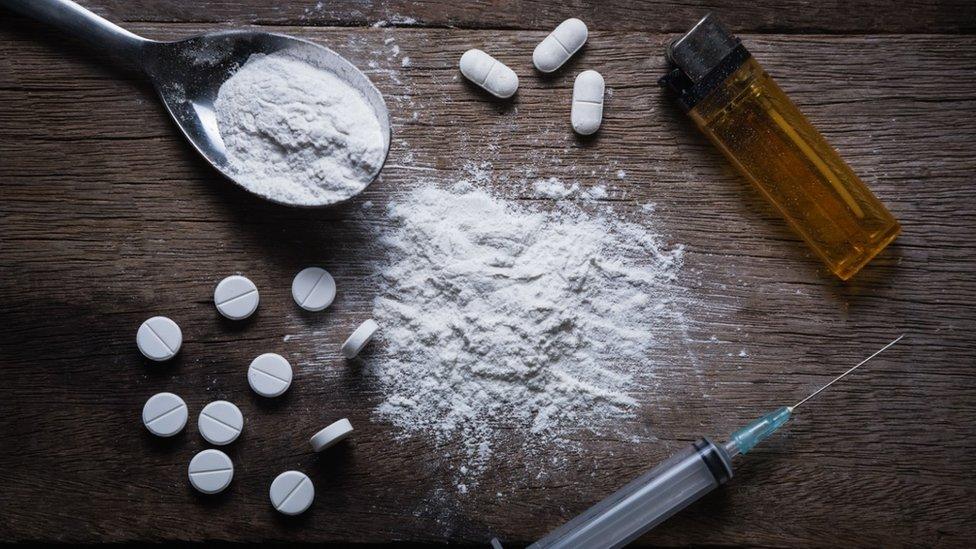Covid: Downers more popular than party drugs since pandemic
- Published
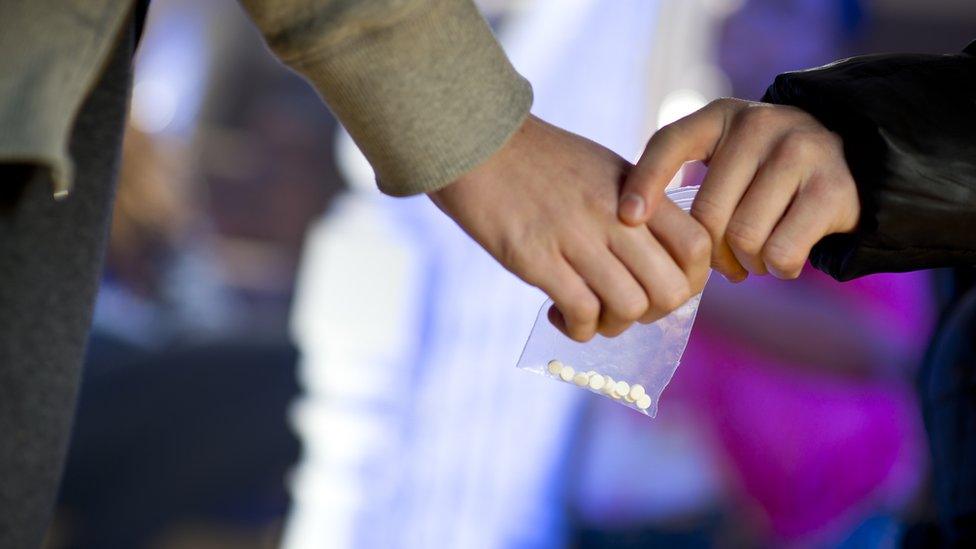
South Wales Police's David Thorne said drug supply was not inhibited by Covid
Drug users have switched from party drugs such as ecstasy to so-called "downers" since the pandemic, according to a top police officer.
Downers are suppressants people sometimes take to relax as opposed to stimulating "uppers".
South Wales Police Assistant Chief Constable David Thorne said drug supply was not inhibited by Covid.
County lines, he said, saw the exploitation of young people being used to move drugs.
At a House of Commons Home Affairs Select Committee, Mr Thorne said there was a greater use of "downers as suppressants, rather than perhaps the more typical party drugs, perhaps cocaine and MDMA".
While the supply was not affected, not as many drugs were sold, so it was stockpiled, meaning "we have seen greater availability and the price being cut," he said.
"Another factor in this area of business is the use of the dark web.
"People are able to order this stuff from their front rooms - they do not have to step out of their houses to get it."
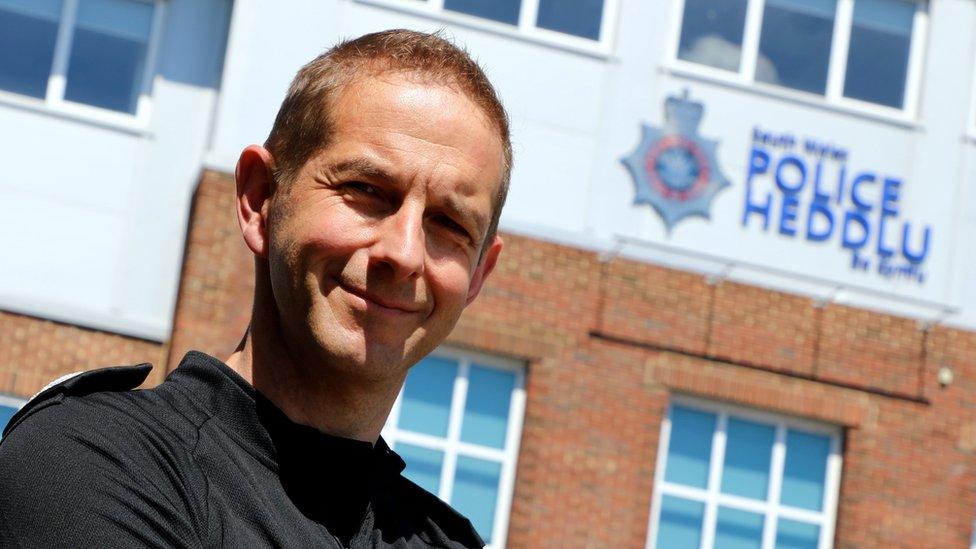
David Thorne said there was greater use of "downers" as opposed to party drugs
Mr Thorne also believes there could be benefits from some decriminalisation of drugs as the criminal status of "low level" drug use "doesn't help addicts kick the habit" and prevention and treatment were important in tackling the issue.
North Wales Police and Crime Commissioner Andy Dunbobbin said he would like to see the law changed to allow drug consumption rooms.
Mr Thorne told the committee's inquiry into drugs that the South Wales Police force region has 53 mapped organised crime groups, the majority of which were drug related.
There are real issues around drug deaths, he said, which had begun to rise again after lockdown.
Speaking on a panel including police chiefs from Merseyside and Thames Valley, Mr Thorne said "we need to step into this territory" of decriminalisation "with a great deal of caution".
He said there was still a "huge amount of harm" caused by alcohol abuse, even though it is legal.
"I think there have been some benefits shown from decriminalisation of low levels... in terms of getting people into treatment rather than criminalising them.
"By criminalising low-level drug use, what we do see is that doesn't help addicts kick the habit and get off that cycle of addiction."
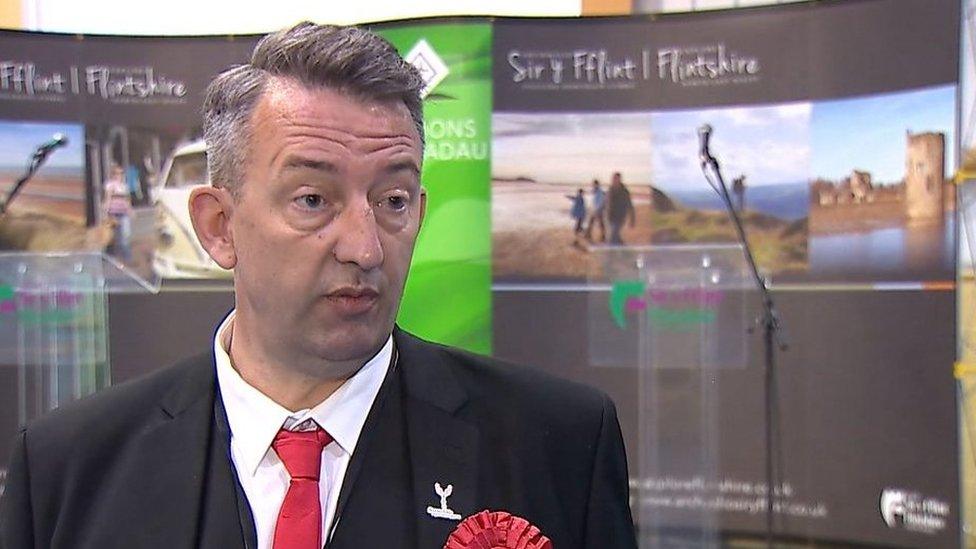
North Wales Police and Crime Commissioner Andy Dunbobbin said he would be an advocate for drugs consumption rooms
He did say, however that he did not think enforcement would "ever go away and it is quite right that it is there".
He said that punitive punishments put additional stresses on people misusing drugs, and sent addicts into a "tailspin".
Mr Dunbobbin said he would advocate for facilities where people using drugs could be supervised, which exist elsewhere in Europe.
"I would be personally supportive of that as a way forward but the caveat would be that the Misuse of Drugs Act, over 50 years old now, could be amended," he said.
Drug fix rooms had been advocated by Mr Dunbobbin's predecessor, Arfon Jones.
Mr Thorne said while there were benefits with consumption rooms allowing people to take drugs in a safe environment there were "some concerns".
"If you were to set these up then and you then think about the supply chain that's coming in, you can probably work out very quickly where the supply chain would set up shop probably quite close to the consumption room," he said.
However, he said heroin-assisted treatment was seriously being considered with the Welsh government, where prescribed drugs are administered.
David Sidwick, Police and Crime Commissioner for Dorset - said a majority of PCCs were opposed to decriminalisation and consumption rooms.
Related topics
- Published1 June 2022
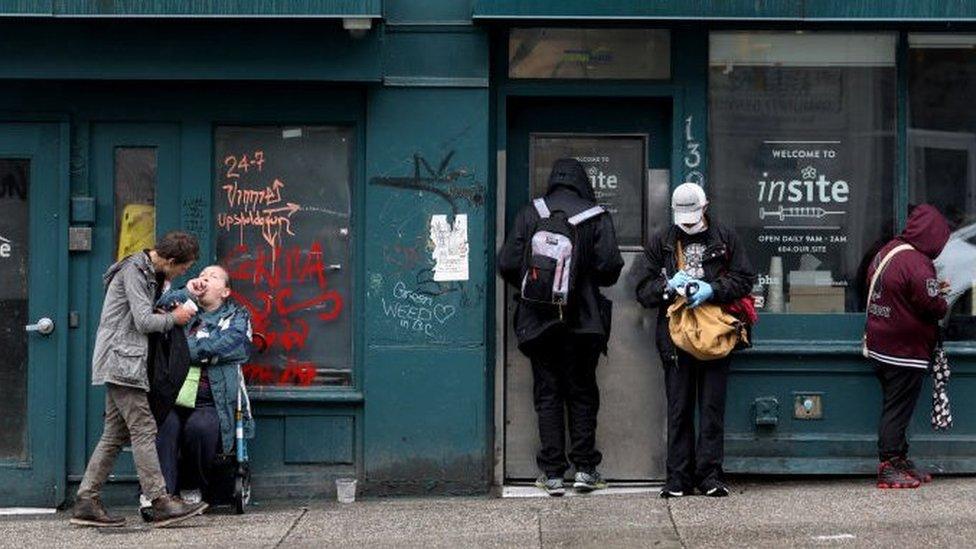
- Published27 May 2021
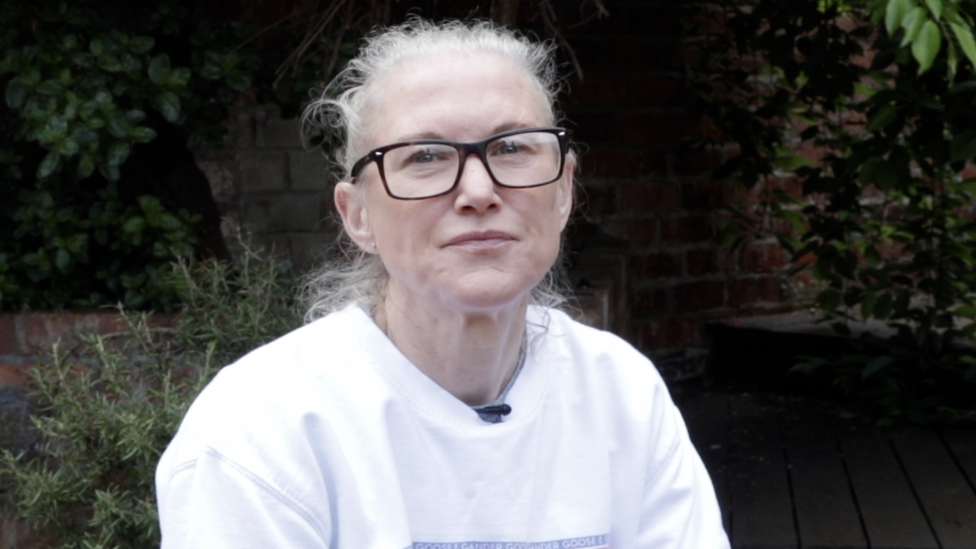
- Published22 September 2021
